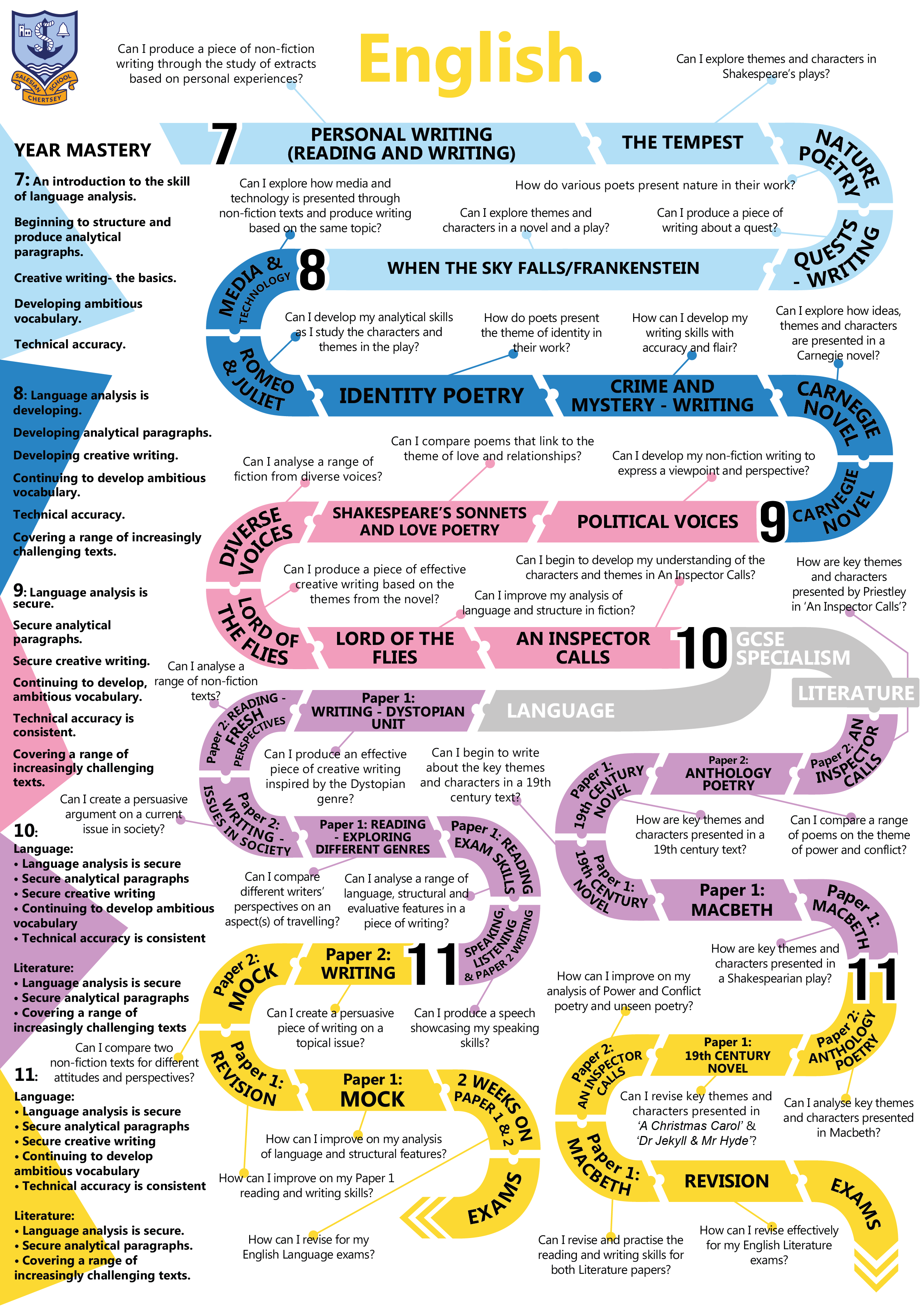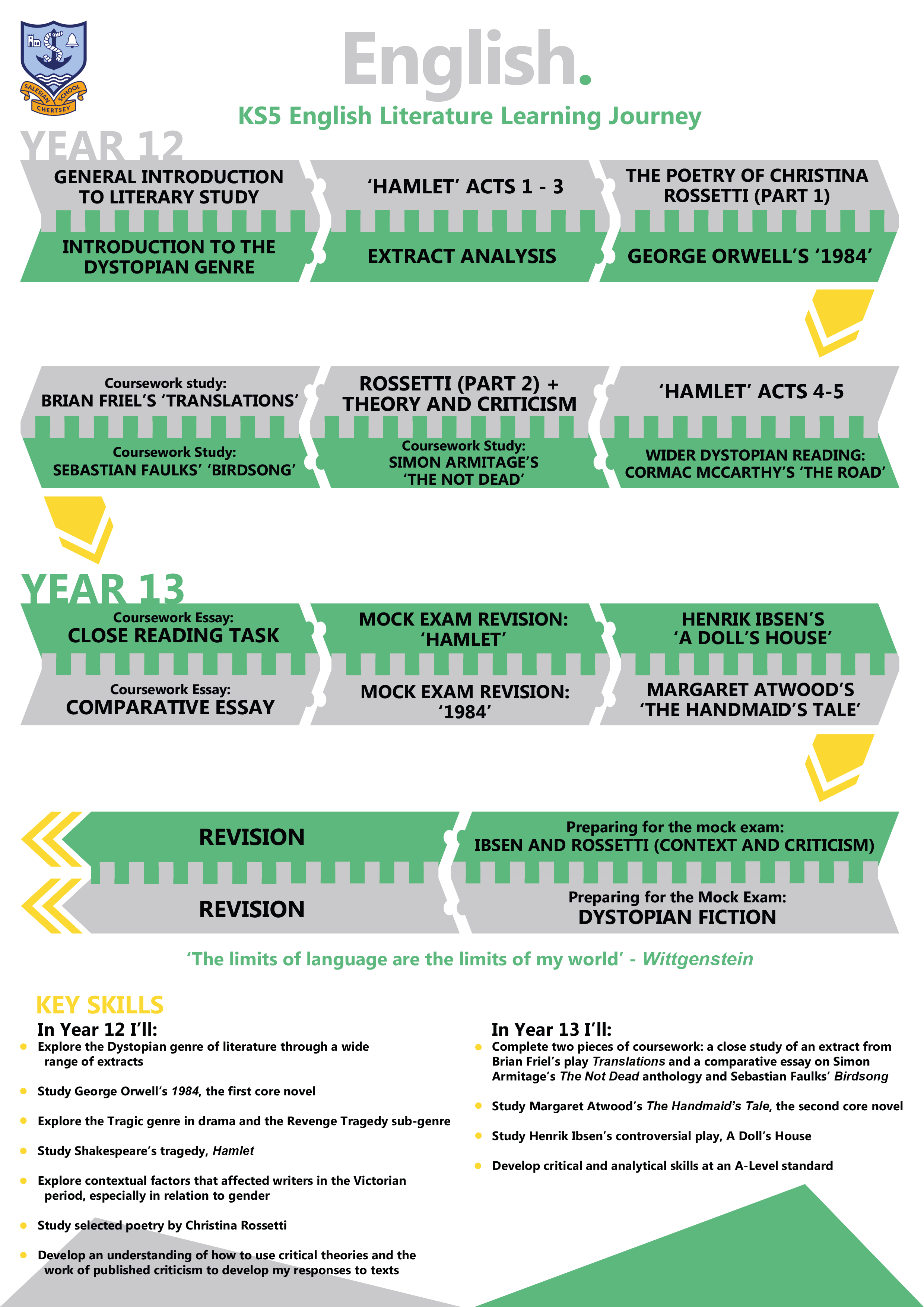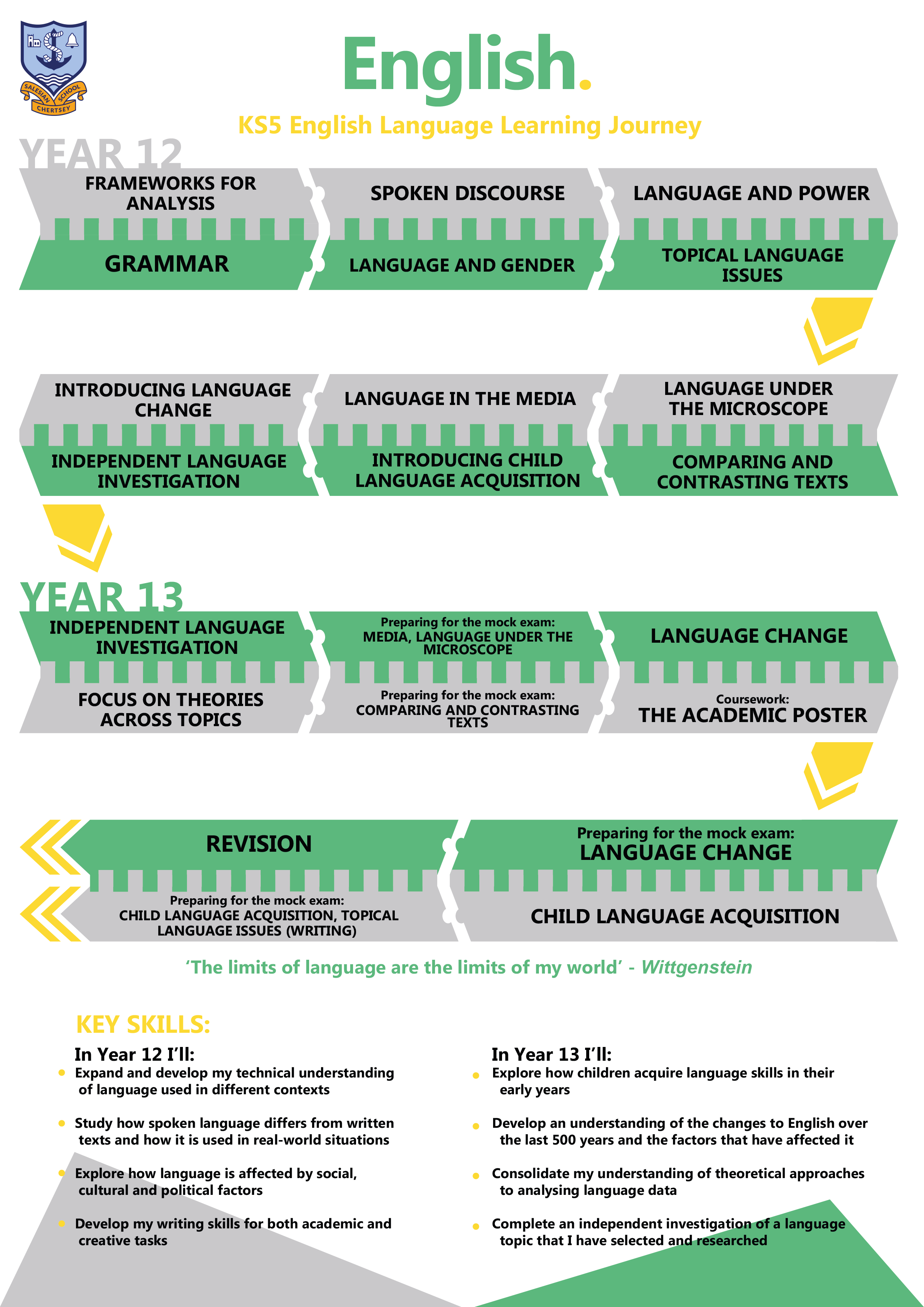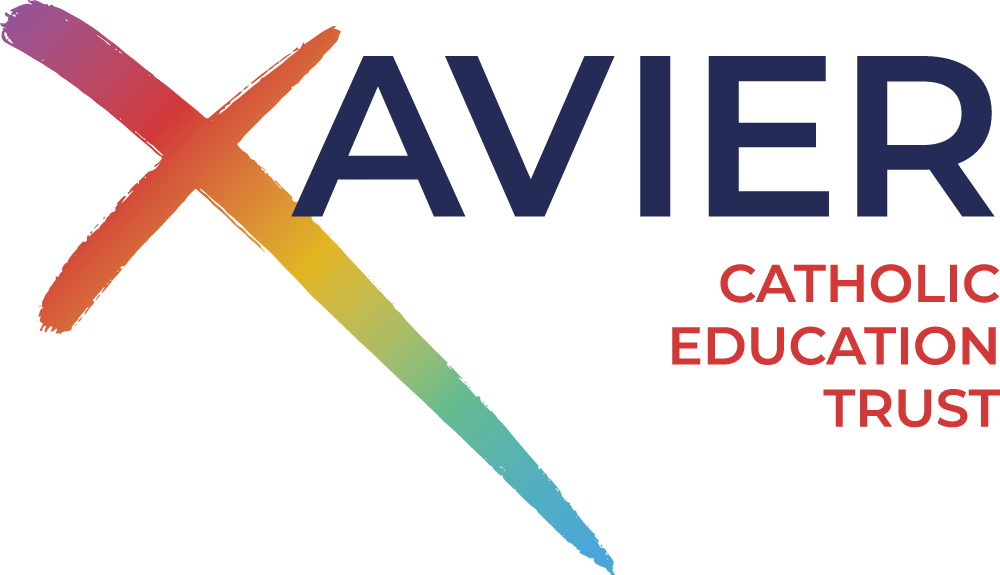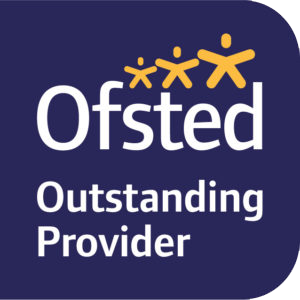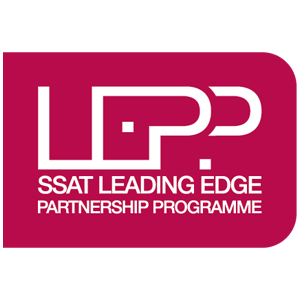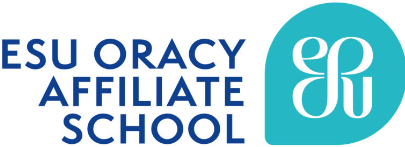Students embarking on their discovery of Key Stage 3 English will be given the opportunity to engage with a range of diverse texts and genres that span different time periods and perspectives. Every year, students are challenged to develop their critical thinking and key literacy skills through an exploration of thought-provoking themes and ideas in a rich map of poetry, plays, novels and non-fiction texts including nature poetry in Year 7, a novel from the latest Carnegie shortlist in Year 8 and a unit on contrasting political voices in Year 9. We aim to foster a lifelong love of reading and writing by promoting an appreciation of different types of literature, while also enabling students to advance their communication skills through debate and discussions. By the end of Key Stage 3, we strive to ensure that students are equipped with the knowledge and awareness of the world around them that inspires them to become more curious, enthusiastic, and empathetic members of society.
English
Key Stages 3, 4 & 5 Curriculum
Throughout Key Stage 4 students are guided through a curriculum of English Language and English Literature, culminating in two separate GCSEs at the end of Year 11. Students study a varied, rich and challenging curriculum enabling them to progress their reading and writing skills. Students will explore how set texts are deliberately constructed by writers and are encouraged to develop individual interpretations. Students will also develop their writing skills, their ability to think critically and engage in the creation of well-informed personal responses to set texts and extracts. Furthermore, we ensure students feel confident approaching an extensive variety of genres from different authors spanning different time periods: from investigating a modern text, 19th Century novel, Shakespeare and poetry. Students will feel confident analysing the language, structure and form of these texts whilst also exploring their contextual significance. The English curriculum aims to ensure our students are proficient and confident communicators; we will harness these skills to encourage and support students to realise their vocation after their Key Stage 4 journey with us.
At Key Stage 5 students are encouraged to develop more advanced, academic approaches to study, with varied and innovated approaches to teaching. All classes are shared between two teachers. Independent learning is encouraged and 20% of the marks for each A-Level comes from coursework where students are responsible for setting their own tasks.
In English Language – which is a very different subject to the GCSE course – students gain confidence in understanding the technical features of how language is used in the real world, including the features of spoken language; how we learn language in infancy; the history of English and why it has changed; the way the media uses language to influence us; and to write in a sophisticated register for varied audiences.
In English Literature, students study – and enjoy discussing – a variety of drama, poetry and prose texts ranging from Shakespeare to the 21st Century. Students will build on the confidence they have gained at GCSE to analyse the relationship between texts, their relevance to different audiences over time, and develop an increasingly sophisticated academic register in which to express their ideas.
